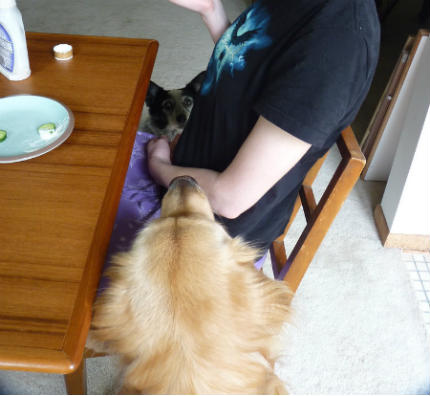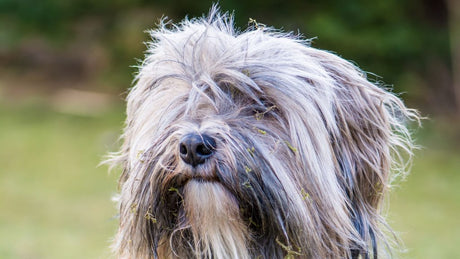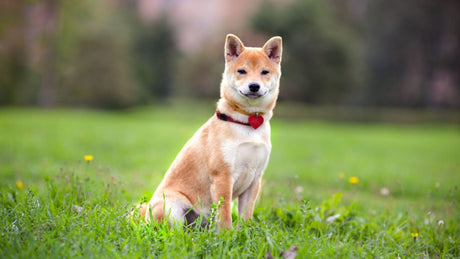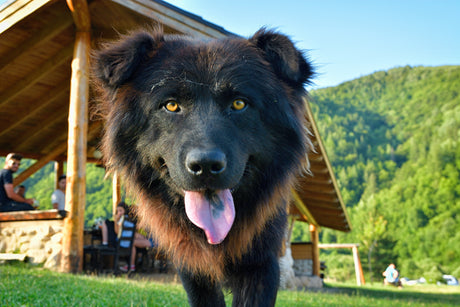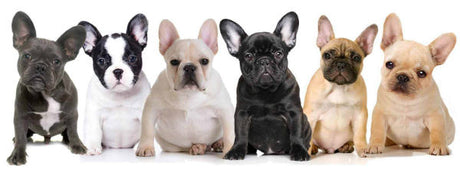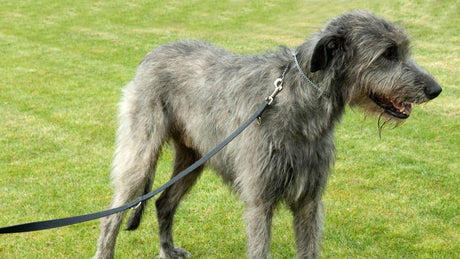Chocolate is toxic to dogs (Yes, but with nuances)
One of the most replicated myths about chocolate is that it is a toxic substance that you should never give to your dogs even by mistake, as it will be necessary to call the vet. This has an important nuance that we will analyze below. Although there is some truth in this statement, in reality it corresponds only to certain harmful components that some chocolates have; particularly methylxanthine - better known as theobromine - which is a substance found mainly in dark chocolates .
Some foods make them more aggressive
Among the myths that have been widely debunked is the belief that some foods such as chili or raw meat can cause a higher level of aggression in dogs, even being used intentionally for this purpose.
They should never eat bones (Yes, but with nuances)
This is one of the most widespread myths about nutrition in dogs. During the thousands of years of evolution of this carnivorous animal, bones are something that have always been present, as they also fulfill important nutritional and motor functions. Although, like all myths, this belief arises from certain shades of truth; And there are indeed bones that could cause harm to your pet , although if you choose the most appropriate ones, and take the necessary precautions, you will be doing them a good by providing them with this type of food frequently.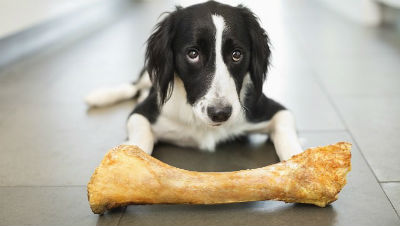
You should never give him leftovers (Yes, but with nuances)
This is another myth that actually has more falsehood than truth, because, although it is true that if you ate pizza , hot dogs or other examples of processed food, the damage you can cause will be more than the nutrition you can provide. ; In fact, recent research such as that carried out by scientists at the Walsworth Institute has shown that if it is leftover food from fresh foods , it can provide multiple nutritional supplements of great value for your dog. So, it all depends on what you have eaten.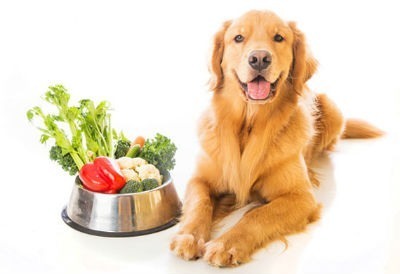
They need a lot of carbohydrates
In carbohydrates we have another example of nutrition myths for dogs, since they are frequently associated with energy; and although it is true that they can fulfill a function in this sense, there is also evidence that there are other substances that perform this same task. So, in reality, there is no known exclusive function of carbohydrates in dogs.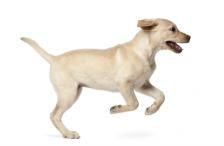
They eat grass if they feel bad
Also mainly myths are the beliefs that dogs eat grass when something bad is happening to them and they seek to somehow regenerate their digestive system. Although this may have a bit of truth, in reality scientific studies have shown that it is a very common behavior that is present in almost 4 out of every 5 canids, without their health being the main reason.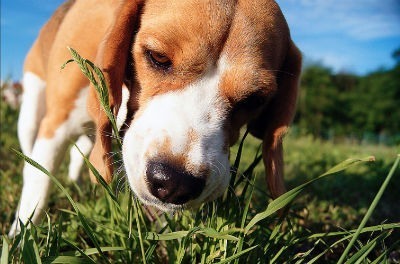
You may be interested in reading: Why do dogs eat grass?
Cow's milk is good for puppies
Persistent advertising is often capable of creating myths and making us forget the obvious, such as that cow's milk is from cows, and that it can actually be harmful to most mammals. This is one of the myths particularly linked to newborn puppies. This type of milk contains a high proportion of sugar and lactose, which makes it difficult to digest , even more so at this stage.
You want shiny hair on your dog, give him an egg
This phrase is another of the myths that abound about dog care. But instead of taking advice without a reliable source into consideration, we suggest you take into account the warnings from organizations such as the American Society for the Prevention of Cruelty to Animals, who have warned about the negative effects on metabolism generated by avidin. , a substance that is present in raw egg yolks.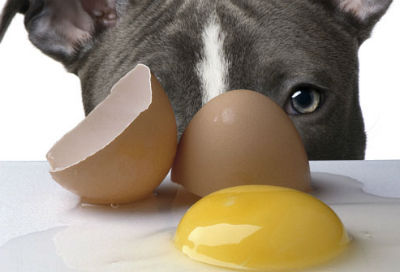
If I give him feed from a stronger breed I will make him grow more
There are also myths lacking scientific support to believe that by feeding your small, calm breed of dog with food for dogs with higher nutritional needs you will increase its fierceness and growth capacity.
You can take harmless medicines
If you think your dog has some type of discomfort, the myths that suggest that children's pain relievers can be used safely in dogs is another serious mistake that can put your pet at serious risk .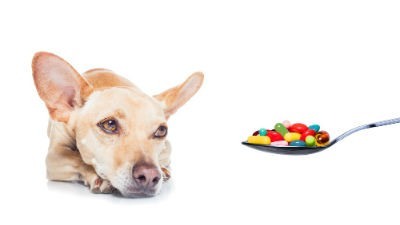
Dogs should always have their food available
Beware of myths, even today there are those who believe that they pamper their pet better if they leave them a bowl full of food all the time. However, multiple scientific investigations have documented that it is actually convenient for dogs to also have their regular meal times.
You can eat as many sweets as you deserve
Likewise, it is also important to take care of the amount of treats you give your pet. If you are in a training session, where you want to reward their “good deeds”, it is important that you apply limits , since these types of foods are designed to be snacks that are harmless on an occasional basis. In addition, they may contain multiple elements with excess toxic capacities.
Organic food is the best for my dog
Sometimes myths and a false conception are also created around products labeled as “organic”, and although it is true that in theory it is an advantage to opt for products free of fertilizers, hormones or pesticides, it is also important to consider the reality. We are not saying that organic is bad , but what should be kept in mind is that it is not a “perfect food” label, which will necessarily represent the best alternative for your pet. From the outset, consider that many companies of dubious origin use this emblem only for commercial purposes and without actually guaranteeing its origin - be careful with those products whose company does not have a page or telephone number where you can make inquiries - in addition to the fact that there are also commercial traps, where feeds are provided very “organic”, but when you review the nutrient table in detail, you detect that in reality the largest proportion is of compounds with little nutritional contribution for your pet, which is of major importance. Choosing the correct food for your dog depends on its characteristics, so it is advisable to make sure you choose the most appropriate food for your dog.Conclusion
Many myths about dog nutrition actually have very little truth and a lot of lies, and others are based on reality and distorted.

